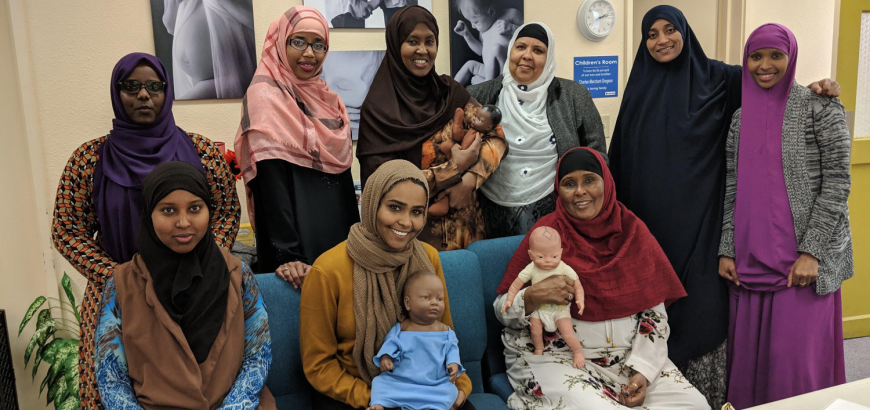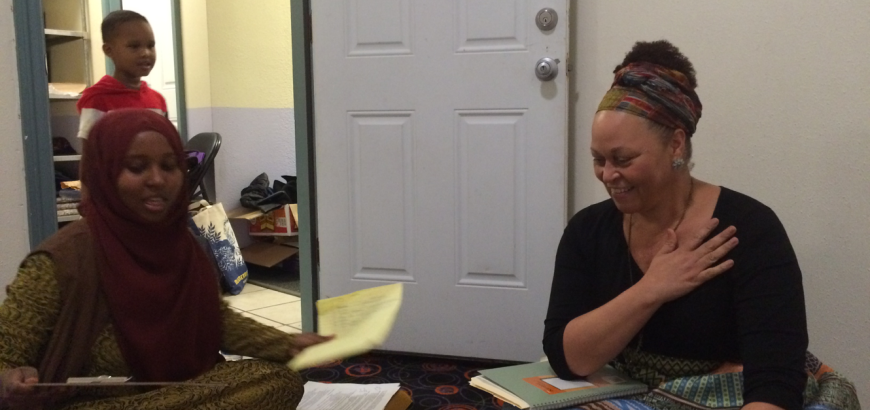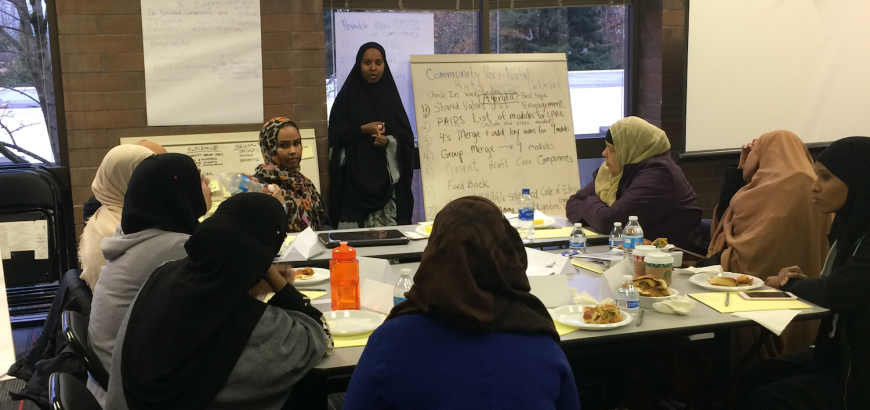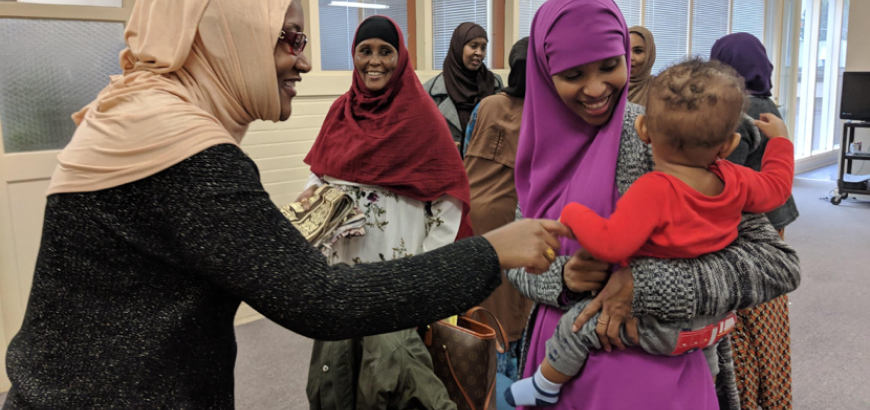Anthropology Professors Rachel Chapman and James Pfeiffer are collaborating with the Somali Health Board on a new research and advocacy project titled, Mama Ammaan (Safe Mother) Project: African Mother to Mother Antenatal Assistance Network (AMMAAN). The Somali Health Board is known for its work mobilizing across immigrant and refugee communities for improving community heath care and health education, as well as developing approaches to group prenatal care for Somali women. A partnership between the UW and the Somali Health Board grew out of a common connection to the Rainier Valley Community Clinic and an interest in building an advocacy relationship between the Somali Health Board and Health Alliance International. Funded by a UW Population Health Pilot Research Grant (School of Public Health, Department of Global Health and the UW Center for Studies in Demography and Ecology), the goal of this pilot is to test the feasibility of a community developed and run, culturally congruent, group perinatal care services model working with local doulas to assist under-served, immigrant and refugee communities in Southeast Seattle to access, navigate, and bridge perinatal health service gaps. “Cultural congruence” refers to a quality of care that is possible when “providers and clients create an appropriate fit between professional practice and what patients and families need and want in the context of relevant cultural domains. Through culturally-congruent care, patient and family desires and needs are skillfully addressed in interaction with providers who adapt care to meet the patients’ unique needs” (Shim and Boorenbos 2010: 260). Dr. Chapman explained: “It was just about the time that legislation was passing which sought to block immigration from what amounted to selected Muslim countries, that we started developing this idea for research here at home, in Seattle. In the spirit of advocacy that our work has always centered, we asked ourselves, what do you do when, in our name, our government seeks to limit the freedom, relationships, family unity and dignity of our Muslim friends, colleagues, and communities? We seek to honor their presence by securing safe passage of families who are here, and who deserve the best of care and have a right to continuity here in the US. When they go low, we tried to figure out what going high would look like. This project came out of those discussions.".
This feasibility pilot builds on Dr. Chapman’s Royalty Research Fund (RRF) formative ethnographic study implemented with the Somali Health Board and Health Alliance International (HAI) — a Center in the Department of Global Health — to better understand elevated negative maternal/infant outcomes among reproductively vulnerable women and families in Seattle’s growing immigrant and refugee communities. The RRF formative research sought to better understand how marginalized communities access and utilize much-needed perinatal and birth care, and further, what resources and resiliencies they employ to optimize health outcomes, and navigate healthcare options and service gaps. To date, the project has supported the development of a truly community-based participatory action research model and relationship that has evolved. In order to accomplish this rare set of trusted connections, and build increased community-based participatory action research capacity, UW researchers from anthropology, global health, pediatrics, psychiatry and social work partnered with Somali Health Board (SBH) to recruit and collaborate with a ten-person team of Somali researchers and community activists to lead all research activities – from IRB application, review and pilot of research instruments, adaptation of community perinatal care worker education, community-based ethnographic research and development of the core components of a culturally congruent group, mother-to mother perinatal care services, including a modified maternal mental health screening tool.
We worked with another community partner, Parent Trust for Washington Children, and Somali midwives, doulas and nurses on the research team to modify and jointly implement, a Great Start Professional Community Childbirth Educators Workshop for ten Seattle-based Somali doulas. This training and the collected Somali doula participant feedback is the foundation for developing modules for a nine-month, family-friendly, mother to mother, group Community Perinatal and Birth Class, a Dads as Doula (DaD) workshop for partners of participating pregnant women, and other core components for the Mama AMMAAN intervention. Beyond these two curricula, core components of the pilot intervention include a lay maternal depression screening tool to assist in mental health care referral and culturally congruent post-partum, doula home visit services. The snow has delayed the community kick-off of the implementation of the pilot, but as soon as the snow melts, we are ready to birth this project. The project will be implemented by Somali Health Board in collaboration with Somali Doulas Northwest.
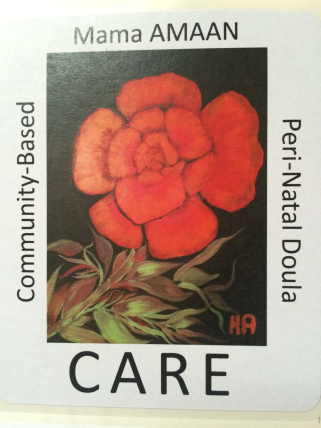
Sticker for the project featuring painting by Seattle Somali Artist, Mama Hawa
